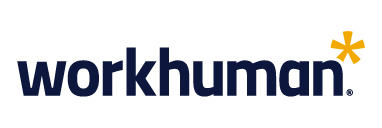Cultivate a purpose-led culture of trust and transparency
Creating an environment in which employees feel trusted and valued is the cornerstone of authentic engagement.
Key to this is having open channels of communication. There are several approaches for achieving this, such as regular town halls, Q&A sessions or suggestion boxes. Do whatever feels right for your organisation, just ensure that employees’ voices are heard and their feedback is valued and acted upon.
Read more: Effective communication can change everything
The other side of this is transparent decision-making. Take your employees on a journey to ensure they understand the purpose and vision behind strategic decisions or organisational changes. Having this understanding contextualises decisions by bringing this in line with the business’ overall mission and values, which employees should share. This transparency helps to build trust and aligns the workforce with the company’s overall purpose.
Prioritise employee wellbeing
Employee wellbeing is fundamental to authentic engagement. While it isn’t a new subject, many organisations still don’t take the authentic approach required to make a real difference, with research from health group Engage showing that one third of employees don’t believe they receive sufficient support for their physical, mental or financial wellbeing from their organisation. This is hugely concerning, especially considering that when offered comprehensive benefits, 75% of employees are more likely to stay with their current employer.
‘Comprehensive benefits’ encompass a wellbeing strategy that is tailored to the diverse and multi-generational needs of your people. Do not go for a one-size-fits-all approach, adopt one that is unique to your organisation and your people. This should holistically support each pillar of wellbeing, including physical and mental health services, financial wellbeing tools and perks, as well as professional resource to support employees in excelling in their specific roles.
Read more: Health and wellbeing: why prevention is the best strategy for success
An often-undervalued aspect of employee wellbeing is offering flexible working arrangements. Each employee will have unique circumstances, so providing options for remote work, flexible or condensed hours, and hybrid options enhances work-life balance and boosts productivity.
Recognition and reward
Recognition is a powerful tool in driving employee engagement.
Importantly, recognition shouldn’t remain exclusive to exceeded role KPIs or targets. Celebrating small wins and acknowledging daily achievements is just as effective. After all, everyone likes receiving recognition for their contribution. There are several ways to do this, from an employee recognition platform which can be particularly effective for larger organisations to centralise recognitions, celebrate milestones and host award nominations. But remember, recognition shouldn’t just come from management. Creating a culture where recognition flows freely among peers significantly boosts engagement too.
Of course, recognition can be elevated with reward. Tailored rewards can be monetary or non-monetary, such as additional time off or retail vouchers, and help managers celebrate key moments.
Leverage technology for engagement
Technology used as a force for good can unlock authentic engagement. This is especially effective for teams with a mix of office and deskless workers, or that are geographically spread out.
Read more: "Stay on top of skills and technology to overcome future challenges"
Having a centralised employee engagement hub ensures that everyone can access the same company updates and communications and can act as a portal to bring culture to life by incorporating rewards and recognition too. Many can also support feedback features which can be effective ways to gauge employee sentiment and ideas, growing engagement further by amplifying voices at all levels of the business.
Create a feedback-rich environment
An environment where feedback is constructive and continuous leads to better engagement. Scheduling regular one-to-one meetings between employees and their managers to discuss progress, challenges, and career aspirations ensures they feel recognised as an individual and their manager prioritises their growth and development. Employees are then empowered and incentivised to own their development and achieve great results.
Driving authentic engagement requires a multifaceted approach that intertwines trust, wellbeing, recognition and purpose. HR leaders are pivotal in creating an environment where employees feel genuinely engaged and motivated, however managers play a critical role too. By implementing these strategies, HR professionals can transform their organisations into thriving environments in which employees are engaged, productive and fulfilled.
By Chris Brown, CEO of benefits platform, Rippl










